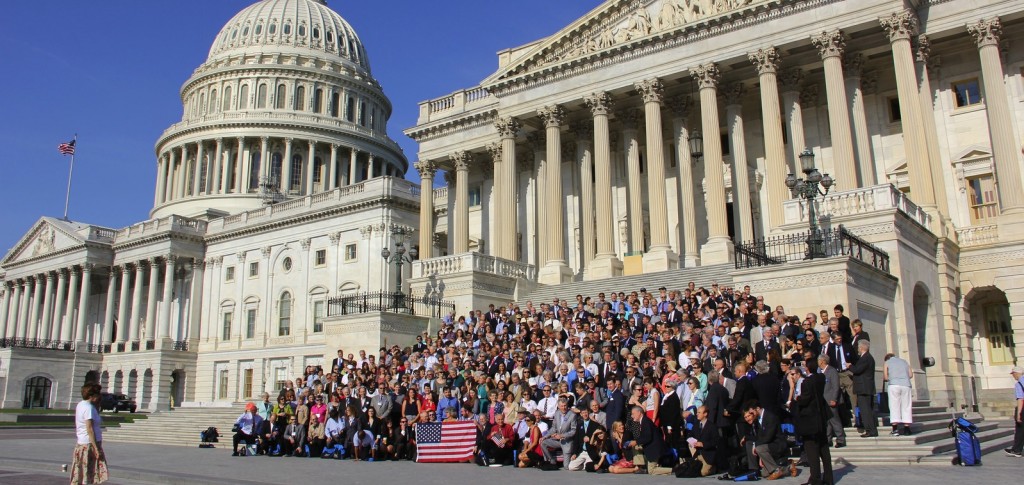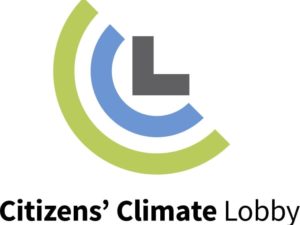FOR IMMEDIATE RELEASE
600 citizen lobbyists take market-based solution for global warming to Capitol Hill
WASHINGTON, DC, JUNE 27, 2014 – After meeting with 500 congressional offices on Capitol Hill, close to 600 Citizens Climate Lobby volunteers departed Washington this week with the strong sense that the conversation is shifting on climate change solutions, a shift that might lead to bi-partisan legislation that prices carbon.
The solution CCL volunteers took to the Hill is a carbon tax that gives all revenue back to households. Against the backdrop of new reports about the severe impact of global warming and the release of new EPA regulations on carbon emissions, CCL’s proposal gained traction as a way to bridge the partisan divide on dealing with climate change.
“CCL has been giving me hope. Now, after this conference, I have confidence,” said Jon Clark, Mid-Atlantic Regional Coordinator for CCL.
Volunteers attending the 5th Citizens Climate Lobby International Conference (June 22-24) spent the first two days of the conference attending plenaries and workshops to prepare for meetings with House and Senate offices. They took to those meetings a study from Regional Economic Models, Inc. (REMI) that examined the impact of a steadily-rising fee on carbon with revenue returned to households. Among other findings, the study shows that, after 20 years, a fee on carbon dioxide rising $10 per ton each year would reduce greenhouse gas emissions 52 percent while adding 2.8 million jobs to the economy.
“The REMI study generated a lot of buzz on Capitol Hill,” said Danny Richter, CCL’s legislative director. “We heard back from a lot of our volunteers who met with Republican offices that there was a great deal of interest in the REMI study. We turned some heads.”
The CCL meetings on the Hill began the same day that a bi-partisan coalition released the Risky Business report on the high cost that global warming will have on the U.S. economy if left unchecked.
“When people like former Treasury secretaries Hank Paulson and George Shultz, both Republicans, start talking about the extreme risk of taking no action on global warming, it increases the pressure on Congress to come up with solutions,” said Mark Reynolds, CCL executive director. “Members of Congress and their staff were listening to our proposal in a way they hadn’t before, and the Risky Business report certainly helped to pique their interest.”
Just weeks before CCL’s conference, the EPA announced new rules aimed at reducing CO2 emissions from U.S. power plants 30 percent below 2005 levels by 2030. Republicans have denounced the new rules as an overreach by the administration and have vowed to block them. Three national polls, however, have given EPA’s proposed regulations overwhelming public support, even when people are told it will raise their utility bills. On June 23, the Supreme Court once again upheld the EPA’s authority to regulate carbon.
“We’ve reached a juncture where Republicans cannot reject solutions to global warming without offering solutions of their own,” said Reynolds. “We’re offering a market-based alternative to regulation that puts money in people’s pockets and adds jobs to the economy. It comes as no surprise, then, that Republicans are interested.”
CONTACT: Steve Valk, 404.769.7461,



